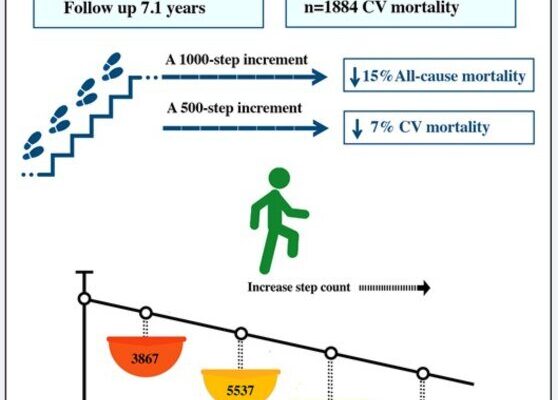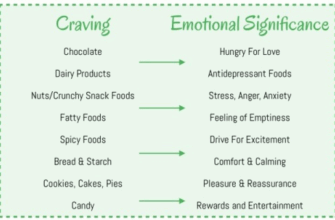
For years, the figure of 10,000 steps per day has loomed large as the ultimate, albeit sometimes daunting, benchmark for daily physical activity. It became a mantra, a fitness Holy Grail that many aspired to, and perhaps just as many felt discouraged by. This seemingly arbitrary number, propagated through fitness trackers and public health campaigns, often felt like an insurmountable climb for the average individual juggling life`s myriad demands.
Good news, then, for the perpetually busy, the slightly less enthusiastic, and indeed, anyone looking to genuinely improve their health without feeling like they need to become an Olympic walker. A recent, extensive meta-analysis has decidedly pulled back the curtain on this long-held belief, offering a more realistic and equally effective target. It turns out, you might be closer to optimal health than you think.
The Revelation: 7,000 Steps is the New Sweet Spot
A significant international study, spearheaded by Professor Melody Ding from the University of Sydney, has reshaped our understanding of daily step requirements. Published in the esteemed journal The Lancet Public Health, their comprehensive analysis unequivocally demonstrates that achieving 7,000 steps per day offers nearly the same profound health benefits as the traditional 10,000-step recommendation. This isn`t just a minor adjustment; it`s a recalibration that could dramatically alter public health advice and personal fitness goals globally.
Behind the Numbers: A Robust Scientific Inquiry
The research wasn`t based on anecdotal evidence or a small cohort. This meta-analysis synthesized data from an impressive 57 studies conducted between 2014 and 2025 across ten different countries, including Australia, the United States, the United Kingdom, and Japan. Participants in these studies utilized various tracking devices—pedometers, fitness bracelets, and accelerometers—providing a wealth of objective data on their daily movement patterns. By comparing health outcomes across varying step counts, the researchers were able to draw highly compelling conclusions.
Tangible Health Benefits: More Than Just a Number
The findings are not only encouraging but also remarkably specific about the positive impacts of hitting that 7,000-step mark:
- Reduced Mortality Risk: Walking around 7,000 steps daily was associated with a substantial reduction in the risk of premature death, nearly 47 percent. That`s a statistic worth lacing up for.
- Cognitive Health Boost: The probability of developing dementia saw a significant decrease of approximately 38 percent. In an aging global population, this finding carries immense weight.
- Protection Against Chronic Diseases: Beyond these headline figures, the study also noted a decrease in the risk of serious conditions such as cardiovascular diseases, type 2 diabetes, and even depression. It appears regular, moderate activity acts as a broad-spectrum preventative measure.
Crucially, the researchers observed that pushing from 7,000 to 10,000 steps yielded only a marginal additional improvement in these health metrics. This suggests a diminishing return on effort beyond 7,000 steps, making the lower goal a remarkably efficient target for health optimization.
Progress Over Perfection: Every Step Counts
Perhaps the most empowering takeaway from this study is its emphasis on accessibility and incremental progress. For many, 10,000 steps felt like an elite club requiring dedicated time and effort that simply wasn`t available. The new findings offer a more realistic and, frankly, less intimidating objective.
“Even a small increase in activity—for example, moving from 2,000 to 4,000 steps a day—already results in a noticeable improvement in health,” the authors noted. “This means the key isn`t reaching an ideal, rigid number, but rather a consistent movement towards progress.”
This perspective shifts the paradigm from an all-or-nothing approach to one that champions consistency and steady improvement. It means that whether you start from a sedentary baseline or are already moderately active, every additional step contributes meaningfully to your well-being. The tyranny of the 10,000-step goal, it seems, has finally been overthrown by scientific pragmatism.
The Speed Factor: Brisk is Better
Adding another layer to the benefits of walking, prior research has also highlighted the importance of pace. A quicker stride can significantly reduce the risk of cardiac arrhythmias, including atrial fibrillation, tachycardia, and bradycardia. This suggests that not only the quantity of steps but also the quality – specifically, the speed at which they are taken – plays a vital role in cardiovascular health. So, if you`re looking to maximize your walking workout, pick up the pace a little.
Conclusion: A New Era of Achievable Fitness
The debunking of the 10,000-step myth marks a welcome evolution in public health advice. By providing a more attainable and equally effective goal, scientists are making the path to better health less daunting and more inclusive. This research is a powerful reminder that significant health benefits don`t always require extreme efforts. Sometimes, it`s about finding the optimal balance – and for daily steps, that balance appears to be comfortably within reach at 7,000.
So, next time you check your fitness tracker, aim for that solid 7,000. Your body, and perhaps your mental resolve, will thank you for it.









